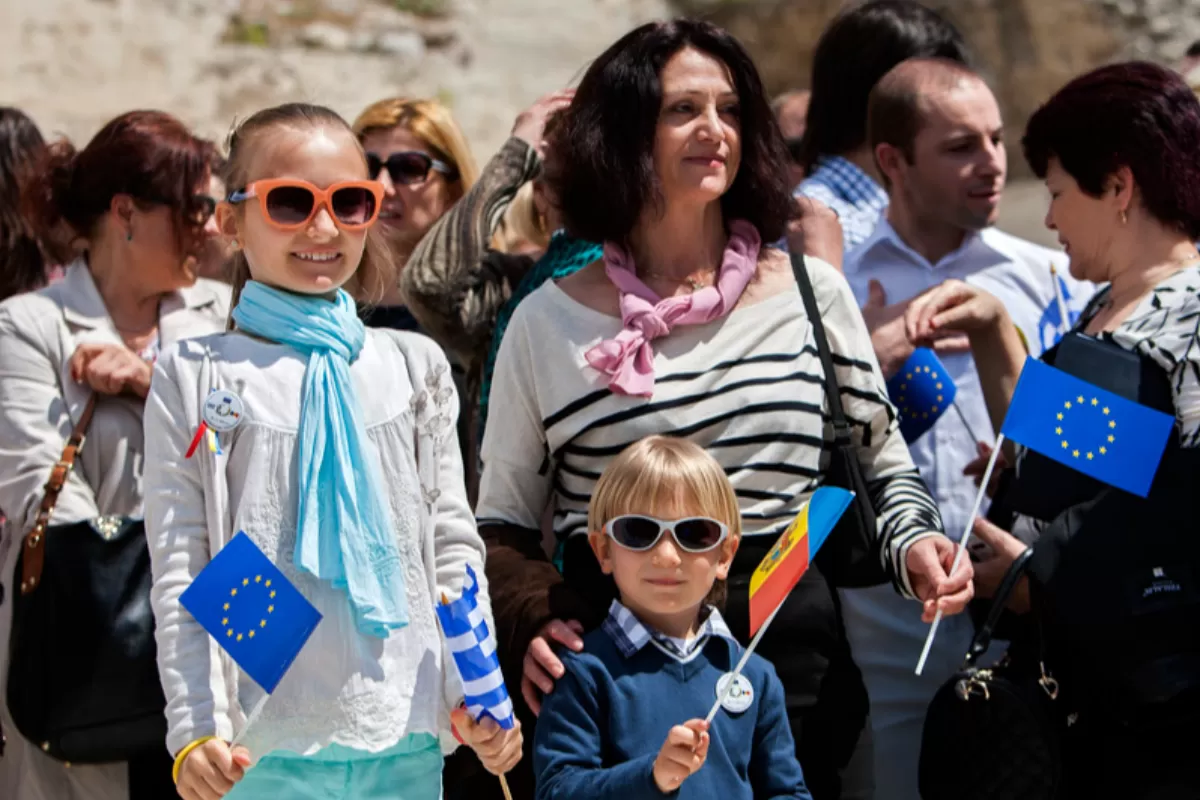
To the PAS government, the Moldovans in the diaspora are better than those who have stayed in the country, according to a narrative released by Chisinau. The aim is to generate dissatisfaction with the PAS government, which benefited from a massive diaspora vote in the elections.
NEWS: Komsomolskaya Pravda writes that the PAS MP Radu Marian went to the United States for a meeting with representatives of the Moldovan diaspora. “It seems that the topic of discussion with the American diaspora was the situation in our country and how the people who left Moldova can contribute to change, for us, those who stayed”, the publication reads. According to KP, “people going overseas, preferring to live in and pay taxes to another state, is one of the PAS’s directives”. The publication recalls in this context that President Maia Sandu and Prime Minister Natalia Gavriliță have stated several times that they will involve the diaspora in reforming the country and asks: “why don't they like those who live in the country? Howe are the ones who left better? Are we more stupid than emigrants? Don't we have any initiative?”. The newspaper writes that to PAS, those who have stayed in Moldova are just “a herd good for voting”, that the government has turned its face to the West, to which it smiles. Respectively, it has turned its back on us”. KP also writes that Moldovan citizens are not trustworthy and that PAS has started to ban and destroy people’s attachment to and predilection for the Russian culture.
NARRATIVES: 1. To the PAS government, the Moldovans in the diaspora are better than those who have stayed in the country. 2. The PAS government is loyal to the West to the detriment of Moldovan citizens. 3. PAS destroys Moldovan citizens’ attachment to the Russian culture.
CONTEXT: The PAS MP Radu Marian was invited to the Moldovan-American Convention , an annual event organized by the Moldovan community in the US and Canada.
Moldovans abroad participated in very large numbers in last year's presidential elections and in the parliamentary elections held this summer. In the presidential elections, at the polling stations abroad, the turnout was a record high: 160 thousand in the first round and 260 thousand in the second round, which represents about 15% of the total number of those who voted. 95% of the votes in the diaspora were for Maia Sandu. The diaspora electorate is mostly represented by young people who see their future with the European Union, and in the parliamentary elections they voted for the pro-European parties. So, we are talking about a pro-West, pro-reform and generally young electorate.
The new administration in Chisinau took into account the role of the diaspora and sought to get closer to it and attract it to Moldova, including to have it participate in governing. In fact, President Maia Sandu and Prime Minister Natalia Gavriliță graduated from Harvard University and worked at the World Bank, and later returned to the Republic of Moldova to get involved in the governing process.
PURPOSE: The narratives aim to arouse the population's dissatisfaction with the current government. At the same time, they are trying to discredit the diaspora, which massively supported the pro-European party in the elections.
WHY THE NARRATIVES ARE FALSE: The pro-European government in the Republic of Moldova has indeed been open to the Moldovan citizens who are living abroad and urged them to return home to get involved in the country's development. This does not mean, however, that it turns its back on those who remained in the Republic of Moldova. Most PAS deputies and members of the Gavriliță Government live in the Republic of Moldova and did not come to power from abroad.
People working abroad are also citizens of the Republic of Moldova. In almost every Moldovan family, at least one member is working abroad. However, these citizens did not betray the Republic of Moldova as the publication tries to insinuate. On the contrary, for more than two decades, remittances have been a significant source for the budget of the majority of the population and, at the same time, amount to 15 percent of the GDP of the Republic of Moldova. On the other hand, the state is facing the problem of population aging and decline, and the return home of Moldovan citizens and their involvement in the labor market and in the business area through investments in the economy is a boost that these areas urgently need.
As regards the narrative that the government looks to the West to the detriment of the Moldovan citizens, this is a false one, because the EU is the main economic partner of the Republic of Moldova. Moldovan citizens enjoy a visa-free regime in the European countries. The Republic of Moldova is also supported by the EU through various financial aid and development programs, for the benefit of the citizens. The EU has provided vital support in combating the Covid pandemic, and in the recent energy crisis it allocated 60 million Euro, with which the government will subsidize the gas consumed by the population.
Regarding the narrative that PAS “is destroying the acquired Russified reflexes” of the population, their habits and attachment to the Russian culture, this is mere speculation. The government has shown no negative attitude towards ethnic Russians or the Russian culture.
GRAIN OF TRUTH: The PAS deputy Radu Marian did participate in the Moldovan-American Convention. President Maia Sandu and Prime Minister Natalia Gavriliță have had meetings with representatives of the Moldovan diaspora from several countries. The PAS government has been open to involving the diaspora in the modernization of the Republic of Moldova.
Check sources:


